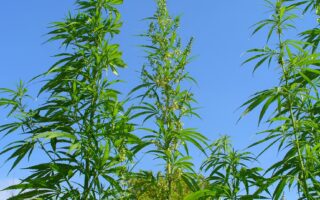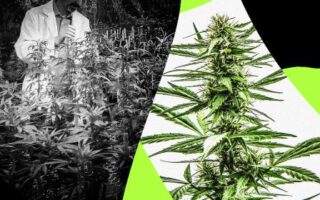Is Cannabis Bad? Navigating the Green Divide
In a world increasingly attuned to the nuances of health and wellness, the conversation surrounding cannabis has evolved from whispers in shadowy corners to robust debates in living rooms, boardrooms, and beyond. Once stigmatized and largely relegated to the fringes of society, cannabis is now basking in the glow of legalization, therapeutic research, and cultural curiosity. But as we plunge into this verdant landscape, an essential question arises: Is cannabis bad? This article seeks to illuminate the multifaceted nature of cannabis, peeling back the layers of its effects, benefits, and risks. With a neutral lens, we will explore the science behind cannabis use, its potential pitfalls, and the societal dynamics that color our understanding of this ancient plant. Join us as we sift through the smoke to uncover the truth behind the green divide.
Table of Contents
- The Complex Nature of Cannabis: Understanding Benefits and Risks
- Navigating the Science: What Research Reveals About Cannabis Use
- Individual Perspectives: The Varied Impact of Cannabis on Health
- Responsible Use: Guidelines for Safe and Informed Consumption
- Q&A
- Closing Remarks
The Complex Nature of Cannabis: Understanding Benefits and Risks
The discussion surrounding cannabis often revolves around its multifaceted properties, revealing both potential benefits and notable risks. On one hand, numerous studies have highlighted how cannabis can serve as an effective therapeutic agent. For instance, it is frequently cited for its ability to alleviate chronic pain, reduce inflammation, and manage symptoms related to anxiety and depression. The active compounds in cannabis, particularly cannabinoids like CBD and THC, have been shown to interact with the human endocannabinoid system, which plays a critical role in regulating a variety of bodily functions. Here are some potential benefits that have garnered attention:
- Pain Relief: Many users report significant relief from chronic pain conditions.
- Anti-Inflammatory Effects: Cannabinoids are known to have anti-inflammatory properties.
- Neurological Support: Some research suggests potential benefits in conditions like epilepsy and multiple sclerosis.
Conversely, it is essential to acknowledge the risks that come with cannabis use, especially when consumed irresponsibly or by vulnerable populations. Studies indicate that frequent use, particularly among adolescents, may lead to cognitive impairments and an increased likelihood of developing mental health disorders, such as anxiety and schizophrenia. Moreover, the method of consumption can greatly influence the effects. For instance, smoking cannabis can have adverse impacts on lung health, while edible forms may deliver unpredictable potency levels. Here is a simple overview of some potential risks:
| Risk Factor | Description |
|---|---|
| Impaired Memory | Regular use may lead to short-term memory problems. |
| Dependence | Some users may develop a psychological dependence on cannabis. |
| Respiratory Issues | Smoking can contribute to chronic bronchitis and other lung problems. |
Navigating the Science: What Research Reveals About Cannabis Use
The growing body of research surrounding cannabis use has provided nuanced insights into its effects, often challenging prevailing assumptions. Studies have shown that while some individuals may experience negative side effects, such as impaired cognitive function or anxiety, others report therapeutic benefits, particularly in relation to chronic pain, anxiety disorders, and seizure management. The variability in responses is crucial to understand, as factors like dosage, method of consumption, and individual biochemistry play significant roles in determining outcomes. Moreover, the context of use—recreational versus medicinal—can further influence perceptions of safety and efficacy.
To synthesize the findings from various studies, researchers have categorized the potential impacts of cannabis into broad themes. This table summarizes key findings:
| Impact Area | Positive Effects | Negative Effects |
|---|---|---|
| Mental Health |
|
|
| Cognitive Function |
|
|
| Physical Health |
|
|
the landscape of cannabis research is complex and evolving, with ongoing studies shedding light on its intricate relationship with human physiology. Understanding the differential impacts is essential for policymakers, healthcare professionals, and users alike, as it aids in informed decision-making in both legal and therapeutic contexts.
Individual Perspectives: The Varied Impact of Cannabis on Health
The effects of cannabis on health can vary significantly among individuals, shaped by their unique biology, pre-existing health conditions, and psychological makeup. For some, cannabis serves as a valuable tool for managing chronic pain, anxiety, and other health issues. It contains compounds known as cannabinoids, particularly THC and CBD, that interact with the body’s endocannabinoid system. This interaction can lead to positive outcomes, such as improved mood and reduced inflammation, enhancing the quality of life for many users. However, it is essential to recognize that these benefits do not apply universally; the same compounds can induce adverse reactions in others, such as heightened anxiety, cognitive impairment, or dependency, highlighting the need for careful, personalized approaches to use.
Moreover, individual responses to cannabis can also be influenced by factors such as consumption method, dosage, and timing. For instance, the effects of smoking cannabis can differ greatly from those experienced when using oils or edibles. Users may encounter varying levels of intensity and duration based on these factors. Here’s a quick comparison of some consumption methods:
| Method | Onset Time | Duration of Effects |
|---|---|---|
| Smoking | Immediate | 1-3 hours |
| Vaporizing | Immediate | 2-4 hours |
| Edibles | 30 minutes to 2 hours | 4-8 hours |
Responsible Use: Guidelines for Safe and Informed Consumption
Understanding the safe and informed consumption of cannabis is essential for anyone considering its use. The following guidelines can help you navigate potential risks while maximizing the benefits:
- Know Your Source: Ensure that your cannabis is sourced from a reputable dispensary or supplier that follows legal and safety regulations.
- Start Low and Go Slow: If you’re new to cannabis, begin with a low dose to gauge your body’s reaction and slowly increase as needed.
- Be Aware of Your Surroundings: Consume cannabis in a safe and familiar environment, especially if you’re unaccustomed to its effects.
- Stay Hydrated: Keep water nearby, as cannabis can sometimes produce dry mouth or dehydration.
Additionally, understanding how cannabis interacts with other substances is crucial. Here is a simple comparison of common factors to consider:
| Factor | Consideration |
|---|---|
| Medication | Consult your healthcare provider about any potential interactions. |
| Alcohol | Combining cannabis and alcohol can intensify effects; approach with caution. |
| Driving or Operating Machinery | Avoid driving after consumption until you understand how it affects you. |
Q&A
Q&A: Is Cannabis Bad? Exploring the Complexities of Cannabis Use
Q: What is cannabis?
A: Cannabis, often referred to as marijuana, is a plant that has been used for thousands of years for various purposes, including medicinal, recreational, and industrial. The plant contains compounds called cannabinoids, the most well-known of which are THC (tetrahydrocannabinol) and CBD (cannabidiol).
Q: Is cannabis harmful to health?
A: The impact of cannabis on health is multifaceted. While some studies indicate potential negative effects, such as impaired memory, altered judgment, and dependency in heavy users, others highlight its benefits, particularly in pain management, anxiety relief, and certain medical conditions. Thus, its effects can vary widely among individuals.
Q: Can cannabis lead to addiction?
A: Yes, cannabis can lead to what is often termed cannabis use disorder, particularly in individuals who use it heavily or start at a young age. However, according to research, the addiction rates are lower compared to substances like alcohol or opioids. Early intervention and moderation are key.
Q: How does cannabis affect mental health?
A: Cannabis’s role in mental health is a double-edged sword. While some individuals report relief from anxiety and PTSD symptoms, others experience increased anxiety or paranoia, particularly at higher doses or with THC-dominant strains. The relationship is complex and influenced by factors such as genetics, dosage, and the individual’s mental health history.
Q: What about the legal aspects? Is cannabis always dangerous?
A: Legality varies significantly worldwide, with some places fully legalizing cannabis, while others enforce strict prohibitions. Legal status can influence perceptions of danger; in jurisdictions where cannabis is legal and regulated, users often report a safer experience than in areas where it is criminalized. However, legality does not negate the potential risks of use.
Q: Is cannabis a gateway drug?
A: The “gateway theory” suggests that using cannabis may lead individuals to try harder drugs. Research has shown that while there may be a correlation, it is essential to consider other factors like social environment and personal choices. Most cannabis users do not go on to use harder substances, making this theory contentious.
Q: How do different forms of cannabis consumption affect its safety?
A: The consumption method—whether smoking, vaping, edibles, or oils—can significantly impact safety and effects. Smoking may lead to respiratory issues if used excessively, while edibles can lead to unpredictable dosing and delayed effects, increasing the risk of overconsumption. Each method comes with its own set of risks and benefits.
Q: is cannabis bad?
A: Defining cannabis as ‘bad’ or ‘good’ oversimplifies its complexities. Like many substances, its impact is dependent on numerous factors, including individual biology, social context, and consumption patterns. Cannabis can offer therapeutic benefits for some while posing risks for others. The key lies in informed and responsible use.
Q: What should someone consider before using cannabis?
A: Individuals should consider their personal health history, potential benefits versus risks, legal status in their area, and the quality and dosage of the product. Consulting with a healthcare provider can provide essential guidance tailored to individual circumstances.
—
This exploration into cannabis use encourages a balanced dialogue rather than staunch categorization, emphasizing informed decision-making as the cornerstone of responsible engagement with this complex substance.
Closing Remarks
As we conclude our exploration into the complex question of whether cannabis is bad, it’s clear that the issue is anything but black and white. Like many aspects of life, cannabis presents a spectrum of effects—both positive and negative—that vary from person to person. With ongoing research and evolving public perceptions, understanding cannabis requires nuance and critical thinking.
Whether viewed through the lens of medical benefits or potential risks, cannabis holds a unique place in contemporary discussions about health, society, and law. The key takeaway is not simply yes or no, but rather an invitation to engage thoughtfully with the facts, individual experiences, and diverse viewpoints.
As we move forward into an increasingly complex dialogue surrounding this plant, remember that knowledge is the best tool we have. Stay curious, stay informed, and above all, remain open to understanding the multifaceted nature of cannabis and its impact on our lives.


